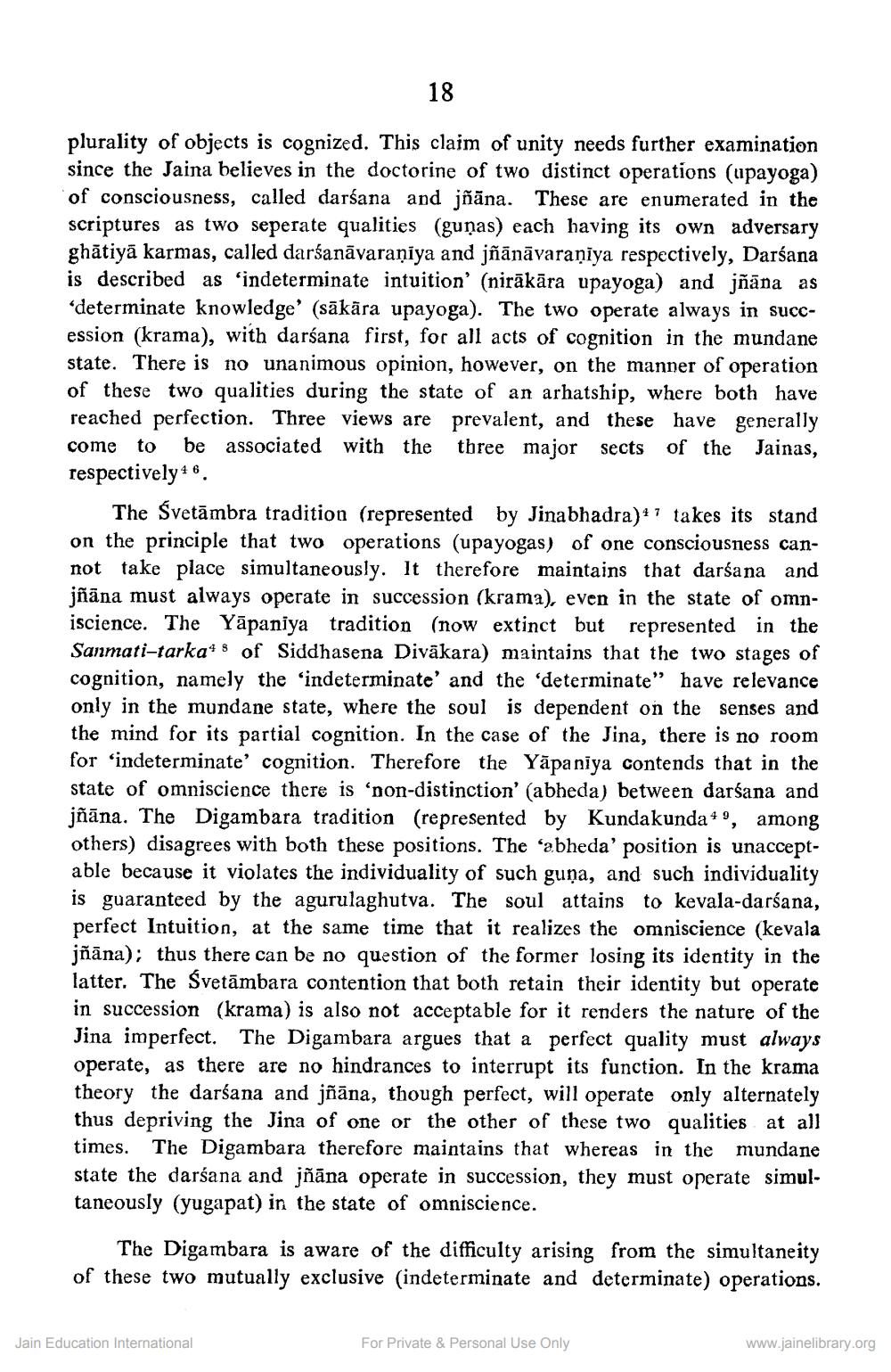________________
18
plurality of objects is cognized. This claim of unity needs further examination since the Jaina believes in the doctorine of two distinct operations (upayoga) of consciousness, called darśana and jñāna. These are enumerated in the scriptures as two seperate qualities (gunas) each having its own adversary ghatiya karmas, called darśanavaraṇīya and jñānāvaraṇīya respectively, Darśana is described as 'indeterminate intuition' (nirākāra upayoga) and jñāna as 'determinate knowledge' (säkära upayoga). The two operate always in succession (krama), with darśana first, for all acts of cognition in the mundane state. There is no unanimous opinion, however, on the manner of operation of these two qualities during the state of an arhatship, where both have reached perfection. Three views are prevalent, and these have generally come to be associated with the three major sects of the Jainas, respectively1 6.
The Svetāmbra tradition (represented by Jinabhadra) takes its stand on the principle that two operations (upayogas) of one consciousness cannot take place simultaneously. It therefore maintains that darśana and jñāna must always operate in succession (krama), even in the state of omniscience. The Yapaniya tradition (now extinct but represented in the Sanmati-tarka 8 of Siddhasena Diväkara) maintains that the two stages of cognition, namely the 'indeterminate' and the 'determinate" have relevance only in the mundane state, where the soul is dependent on the senses and the mind for its partial cognition. In the case of the Jina, there is no room for 'indeterminate' cognition. Therefore the Yapaniya contends that in the state of omniscience there is 'non-distinction' (abheda) between darśana and jñāna. The Digambara tradition (represented by Kundakunda+, among others) disagrees with both these positions. The 'abheda' position is unacceptable because it violates the individuality of such guna, and such individuality is guaranteed by the agurulaghutva. The soul attains to kevala-darśana, perfect Intuition, at the same time that it realizes the omniscience (kevala jñāna); thus there can be no question of the former losing its identity in the latter. The Svetambara contention that both retain their identity but operate in succession (krama) is also not acceptable for it renders the nature of the Jina imperfect. The Digambara argues that a perfect quality must always operate, as there are no hindrances to interrupt its function. In the krama theory the darśana and jñāna, though perfect, will operate only alternately thus depriving the Jina of one or the other of these two qualities at all times. The Digambara therefore maintains that whereas in the mundane state the darśana and jñāna operate in succession, they must operate simultaneously (yugapat) in the state of omniscience.
The Digambara is aware of the difficulty arising from the simultaneity of these two mutually exclusive (indeterminate and determinate) operations.
Jain Education International
For Private & Personal Use Only
www.jainelibrary.org




